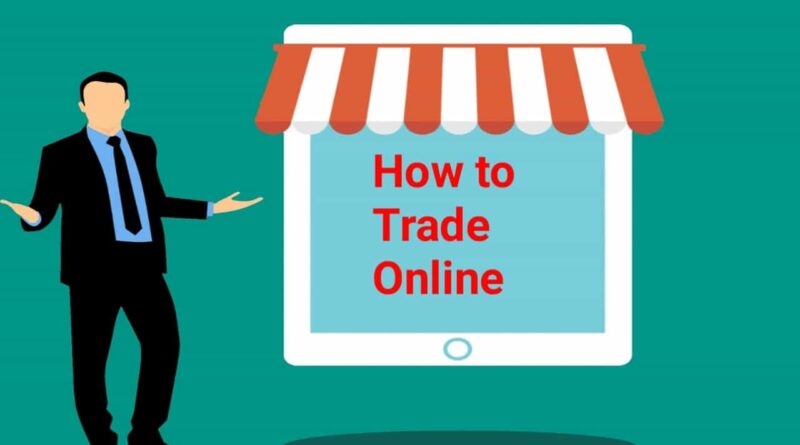How to Trade Online: Exclusive Top 45 Step-by-Step Guide
How to Trade Online: Exclusive Top 45 Step-by-Step Guide
Trading Online: A Guide.
How to Trade Online: Exclusive Top 45 Guide
How to trade online.
How to Trade Online: Exclusive Top 45 Step-by-Step Guide
How to Trade Online:
How to Trade Online: In today’s digital age, trading online has become increasingly popular. It offers a convenient way to invest in various financial instruments from the comfort of your home or office. However, before you start trading online, it’s essential to understand the basics of online trading. Here’s a step-by-step guide on how to trade online.
How to Trade Online: 1) Choose a Broker
How to Trade Online: The first step to trading online is to choose a reputable online broker. A broker is a company that provides you with an online trading platform where you can buy and sell financial instruments. There are several factors to consider when choosing a broker, including fees, minimum deposit requirements, and the types of instruments available for trading.
How to Trade Online: 2) Open a Trading Account
How to Trade Online: Once you’ve selected a broker, you’ll need to open a trading account. The account opening process varies from broker to broker, but typically you’ll need to provide personal information, such as your name, address, and contact details. You may also need to provide identification documents, such as a passport or driver’s license.
How to Trade Online: 3) Fund Your Fund
After opening a trading account, you’ll need to fund it before you can start trading. Most brokers offer several deposit options, including bank transfers, credit/debit cards, and e-wallets. Make sure you understand the deposit options and any associated fees before making a deposit.
How to Trade Online: 4) Choose Your Trading Instruments
Once your account is funded, it’s time to choose your trading instruments. Online brokers offer a wide range of financial instruments, including stocks, bonds, forex, commodities, and cryptocurrencies. It’s essential to understand the risks and potential rewards of each instrument before investing.
How to Trade Online: 5) Analyze the Market
Before placing a trade, it’s essential to analyze the market and identify potential opportunities. This involves using various analysis tools, such as technical analysis, fundamental analysis, and market sentiment analysis. It’s also crucial to keep up-to-date with the latest financial news and events that could affect the markets.

6) Place Your Trade
Once you’ve identified a trading opportunity, it’s time to place your trade. This involves selecting the instrument you want to trade, specifying the trade size, and choosing whether to buy or sell. Most trading platforms offer advanced order types, such as stop-loss and take-profit orders, to help you manage your risk.
7) Monitor Your Trades
After placing a trade, it’s important to monitor your position regularly. This involves tracking the performance of your trade, managing your risk, and making any necessary adjustments. It’s also essential to be aware of any potential events or news that could affect your trade.
8) Keep a Trading Journal
One important step to becoming a successful online trader is to keep a trading journal. This journal should document every trade you make, including the date, instrument, trade size, entry and exit price, and any notes or observations you have about the trade. This can help you identify patterns and improve your trading strategy over time.
9) Practice with a Demo Account
If you’re new to online trading or trying out a new strategy, it’s a good idea to practice with a demo account first. Most online brokers offer demo accounts that allow you to trade with virtual money, so you can get a feel for the trading platform and try out different strategies without risking real money.
10) Learn from Others
Another way to improve your online trading skills is to learn from others. This can include reading books, attending webinars or seminars, following online trading communities, and seeking out a mentor. By learning from others, you can gain new insights and strategies to help you become a more successful online trader.
11) Manage Your Emotions
Online trading can be an emotional experience, especially when you’re dealing with real money. It’s important to manage your emotions and avoid making impulsive decisions based on fear or greed. One way to do this is to set clear trading rules and stick to them, no matter what the market is doing.
12 ) Continuously Review Your Performance
It’s important to continuously review your performance as an online trader. This means analyzing your trades, identifying areas for improvement, and adjusting your strategy accordingly. By reviewing your performance regularly, you can become a more successful and profitable online trader over time.
13) Be Aware of the Risks
Online trading can be a high-risk activity, and it’s important to be aware of the risks involved. It’s possible to lose more than your initial investment, and markets can be volatile and unpredictable. Before investing, it’s important to carefully consider your risk tolerance and ensure that you can afford to lose the money you’re investing.
14) Use Risk Management Strategies
To minimize the risks of online trading, it’s important to use risk management strategies. This can include setting stop-loss orders to limit your losses, using position sizing to manage your risk, and diversifying your portfolio across different instruments and markets.
15) Stay Up-to-Date with Market News
Market news can have a significant impact on the performance of financial instruments, and it’s important to stay up-to-date with the latest developments. This can include monitoring economic indicators, political events, and central bank announcements.

How to Trade Online: 16) Consider Using Technical Analysis
Technical analysis is a popular approach to analyzing financial instruments that involve studying price charts and identifying trends and patterns. By using technical analysis, you can identify potential trading opportunities and make more informed trading decisions.
How to Trade Online: 17) Keep Your Trading Strategy Simple
While there are many trading strategies available, it’s important to keep your strategy simple and easy to understand. This can help you avoid making impulsive decisions and help you stay focused on your long-term trading goals.
Online trading can be a challenging but rewarding activity. By being aware of the risks, using risk management strategies, and staying informed with market news and analysis, you can increase your chances of success. Remember to keep your trading strategy simple and continuously review your performance to identify areas for improvement.
How to Trade Online: 18 ) Choose a Reliable Online Broker
Choosing a reliable online broker is an important step in online trading. You want to make sure that you’re using a platform that is trustworthy and offers fair trading conditions. Research different brokers and read reviews from other traders to find a broker that meets your needs.
How to Trade Online: 19) Set Realistic Trading Goals
When it comes to online trading, it’s important to set realistic goals. You won’t become a millionaire overnight, and it’s important to approach trading with a long-term mindset. Set realistic goals for your trading, such as a certain percentage return on your investment per month, and work towards achieving those goals over time.
How to Trade Online: 20) Practice Patience
Online trading can be a fast-paced and exciting activity, but it’s important to practice patience. Don’t make impulsive trading decisions based on emotions or market fluctuations. Take your time to analyze the market, and wait for the right trading opportunities to come along.
21) Learn from Your Mistakes
How to Trade Online: No trader is perfect, and everyone makes mistakes. It’s important to learn from your mistakes and use them as a learning experience. Analyze your trades to identify where you went wrong, and adjust your trading strategy accordingly.
22) Don’t Overtrade
Overtrading is a common mistake that many online traders make. This involves making too many trades, often based on emotions or impulse, and can lead to poor performance and excessive trading fees. It’s important to have a clear trading plan and stick to it, without getting caught up in the excitement of the market.
23) Use Fundamental Analysis
How to Trade Online: In addition to technical analysis, fundamental analysis is another important approach to analyzing financial instruments. This involves studying the underlying economic, financial, and qualitative factors that can impact the performance of an instrument. By using fundamental analysis, you can gain a deeper understanding of the factors driving market trends and make more informed trading decisions.
24) Understand the Impact of Leverage
Many online trading platforms offer leverage, which allows you to control a large amount of capital with a small investment. While leverage can increase your potential profits, it can also amplify your losses. It’s important to understand the impact of leverage and use it responsibly to manage your risk.
25) Stay Disciplined
Discipline is key to becoming a successful online trader. This means sticking to your trading plan, avoiding impulsive decisions, and maintaining a long-term mindset. By staying disciplined, you can avoid common pitfalls and make more informed trading decisions.
26) Keep Learning
The world of online trading is constantly evolving, and it’s important to keep learning and adapting to new developments. This can include reading books and articles, attending webinars and seminars, and following online trading communities. By continuously learning, you can stay ahead of the curve and become a more skilled and knowledgeable trader.
27) Build a Support Network
Online trading can be a solitary activity, but it’s important to build a support network of fellow traders and mentors. This can provide a valuable source of advice, feedback, and motivation as you navigate the ups and downs of the market.
28) Know Your Tax Obligations
Online trading can have tax implications, and it’s important to be aware of your tax obligations. Consult with a tax professional to understand how your trading activity will be taxed, and keep accurate records of your trades and profits.
29) Use Demo Accounts to Practice
Many online brokers offer demo accounts, which allow you to practice trading in a simulated environment without risking real money. This can be a valuable way to develop your trading skills and test out different strategies before investing real money.

30) Manage Your Emotions
Online trading can be an emotional activity, and it’s important to manage your emotions to avoid making impulsive decisions. This can include avoiding trading when you’re feeling stressed or distracted, and using techniques such as meditation or deep breathing to stay calm and focused.
31) Understand the Psychology of Trading
Understanding the psychology of trading is important for becoming a successful online trader. This involves studying the behavioral and emotional factors that can impact your trading decisions, such as fear, greed, and overconfidence. By understanding these factors, you can develop a more disciplined and rational approach to trading.
32) Stay Objective
Staying objective is an important part of online trading. This means making decisions based on data and analysis, rather than emotions or bias. Avoid becoming attached to particular instruments or positions, and maintain a flexible and open-minded approach to the market.
33) Take Breaks
Online trading can be a time-consuming and stressful activity, and it’s important to take breaks to avoid burnout. Take time to step away from the screen and engage in activities that help you relax and recharge, such as exercise, meditation, or spending time with loved ones.
34) Be Prepared for Market Volatility
Market volatility is a common feature of online trading, and it’s important to be prepared for sudden price swings and unexpected news events. This can include having a plan in place for managing risk, such as setting stop-loss orders or using hedging strategies.
35) Diversify Your Portfolio
Diversification is an important part of managing risk in online trading. By investing in a range of different instruments and markets, you can spread your risk and reduce the impact of any individual losses. This can include investing in different asset classes, such as stocks, bonds, and commodities, and diversifying across different sectors and geographies.
36) Use Risk Management Strategies
Risk management strategies are an important part of online trading. This can include using stop-loss orders to limit your losses, setting profit targets to lock in gains, and using hedging strategies to protect against market volatility. It’s important to have a plan in place for managing risk and to stick to that plan even in times of market stress.
37) Be Patient
Patience is an important trait for successful online trading. It’s important to avoid making impulsive decisions and to take a long-term view of the market. This can involve holding onto investments for an extended period, rather than constantly buying and selling based on short-term market trends.
38) Keep a Trading Journal
Keeping a trading journal can be a valuable way to track your progress and learn from your successes and mistakes. This can include recording your trades, analyzing your performance, and making adjustments to your strategy based on what you learn.
39) Choose the Right Broker
Choosing the right online broker is an important part of successful online trading. This can involve considering factors such as fees, trading platforms, customer support, and regulatory oversight. It’s important to do your research and choose a broker that meets your needs and has a strong reputation in the industry.
40) Stay Informed and Up-to-Date
Staying informed and up-to-date on market news and trends is important for successful online trading. This can include keeping up with the latest economic and political developments, monitoring key indicators and metrics, and following the news and analysis of market experts and analysts.
41) Develop a Trading Strategy
Developing a trading strategy is an important part of online trading. This can involve defining your goals, risk tolerance, and investment style, and using technical and fundamental analysis to identify potential opportunities. It’s important to have a clear plan in place and to stick to that plan even in times of market stress.
How to Trade Online: 42) Have Realistic Expectations
Having realistic expectations is an important part of successful online trading. It’s important to understand that there will be losses as well as gains and to avoid becoming overconfident or taking unnecessary risks. By setting realistic goals and expectations, you can stay motivated and focused on achieving your long-term objectives.
How to Trade Online: 43) Use Technical Analysis
Technical analysis is a valuable tool for identifying potential trading opportunities. This involves analyzing charts and indicators to identify patterns and trends and using that information to make informed trading decisions. By learning how to use technical analysis effectively, you can develop a more disciplined and strategic approach to online trading.
How to Trade Online: 44) Use Fundamental Analysis
Fundamental analysis is another important tool for successful online trading. This involves analyzing the underlying economic and financial factors that impact the price of a particular instrument, such as company earnings, industry trends, and geopolitical developments. By using fundamental analysis, you can gain a deeper understanding of the market and make more informed investment decisions.
How to Trade Online: 45) Monitor Your Performance
Monitoring your performance is an important part of online trading. This can involve tracking your trades, analyzing your performance, and making adjustments to your strategy as needed. By keeping a close eye on your performance, you can identify areas for improvement and make adjustments to improve your overall performance.
How to Trade Online:
How to Trade Online: Exclusive Top 45 Step-by-Step Guide



